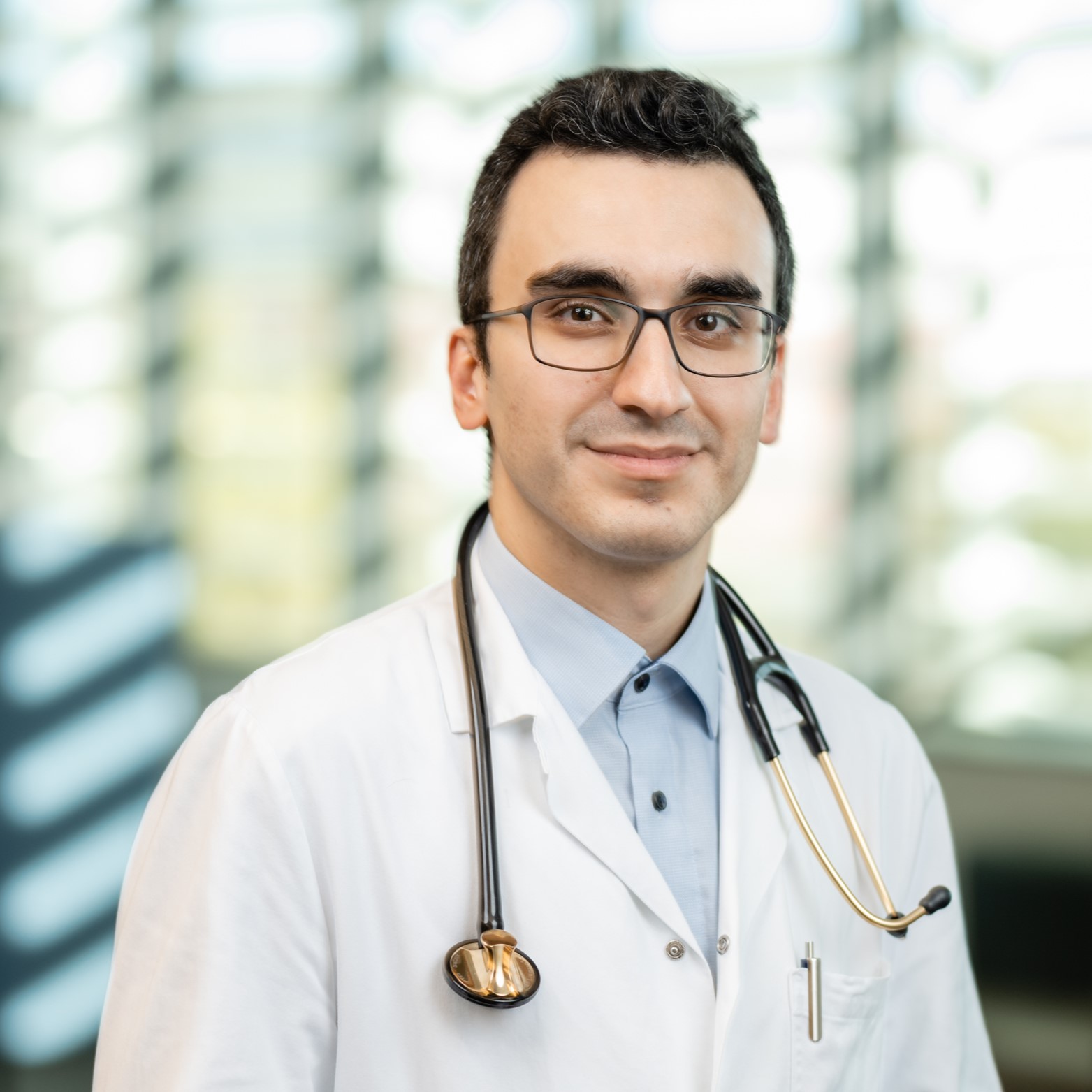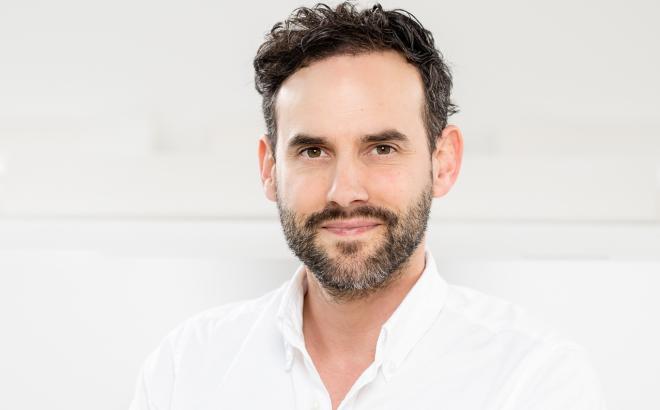Hossein Taghizadeh, Oncologist
First-class research raises the profile of our clinic as a centre of oncological excellence
Dr Hossein Taghizadeh is an assistant physician undergoing specialised training in haematology and oncology at the Clinical Division of Internal Medicine 1 at St. Pölten University Hospital, under the direction of Associate Professor Martin Wiesholzer. Since his medical training, Dr Taghizadeh has been working on advanced cancerous diseases and molecular oncology. Due to this expertise, he currently heads up the gastrointestinal oncology outpatient clinic alongside senior physician Dr Christian Fertl. The dedicated doctor is also a post-doctoral researcher at the MUW Center for Cancer Research under the direction of Professor Maria Sibilia. Recently he finished his master’s degree “Molecular Oncology”. “Research and science are pretty much my hobbies, so I don’t need time away from them,” he laughs as he talks about his projects and goals.
Dr Taghizadeh partly attributes the decision to study medicine to his father: “My father is an ophthalmologist and is always brimming with enthusiasm when he talks about his field,” says the young doctor. “His immense enthusiasm was what drew me to medicine. That great passion sparked the same interest in me, so it was only natural for me to study medicine, although I ended up choosing a different speciality.”
During his studies at the Medical University of Vienna (MUW), Dr Taghizadeh took the opportunity to conduct research into biomarkers in colorectal carcinoma at the Anna Spiegel Research Building, under the direction of biotechnologist and haematologist Professor Christine Mannhalter. This resulted in his thesis and his first co-authorship. Under the supervision of Professor Gerald Prager, the budding doctor and scientist would go on to work on precession therapies for various types of tumours from 2017 to 2021, ultimately receiving his PhD with distinction in oncology based on this work. The need for greater knowledge in the field of molecular oncology prompted Dr Taghizadeh, Gerald Prager, molecular biologist Professor Robert Mader and molecular pathologist Professor Leonhard Müllauer to take an in-depth look at therapeutic approaches based on molecular biology for patients with refractory cancer. “My mentor and doctoral supervisor Gerald Prager – a brilliant, internationally renowned oncologist with the highest moral and ethical standards – not only led me to molecular oncology but also taught me to critically question aspects of science and consider where the greatest medical need in oncology lies,” says Dr Taghizadeh. “This is an essential skill for a researcher and one of the reasons why I’m now a regular reviewer for a number of journals, which hones my scientific thinking.” In July 2021, Dr Taghizadeh will transfer to St. Pölten University Hospital, where he will join the department of Associate Professor Martin Wiesholzer. “The prospect of being able to work mainly in the oncology outpatient clinic and care for gastrointestinal oncology patients was the key factor in this move, and I’m very grateful to the distinguished Professor Wiesholzer, Senior Registrar Petra Pichler and the entire team for giving me this opportunity,” says the young oncologist. He will continue to focus on molecular oncology. Thanks to the increasing opportunities afforded by online training as a result of the Covid-19 pandemic, Dr Taghizadeh is able to continue his training specifically in this field with the Master of Molecular Oncology at the Centro de Estudios Biosanitaris in Madrid. In autumn 2023 he is due to sit a specialist examination in haematology and oncology, after which he will become a senior physician himself. At present, he is still an assistant physician, but has already applied for his teaching qualification at the MUW: “I’m currently teaching at both the MUW and the Karl Landsteiner University of Health Sciences, and I supervise degree candidates. The quality of future oncological care for our patients is in their hands, so I’m training young doctors is very important to me,” he says. “I owe a lot to my mentors, and I’d like to do my bit in return.
Alongside my work at the hospital, I am also committed to science and research, which I believe are integral to any university hospital. A sound scientific understanding leads to better therapeutic decisions and options. Our patients benefit from deeper insight into diseases and targeted questions. We conduct research in order to improve diagnostic options and treatments for our patients and thus improve their quality of life and reduce overall mortality.” Dr Taghizadeh is enthusiastic about clinical research. “Our team at the department is enthusiastic and dedicated. Besides caring for the patients, we also share our knowledge,” he says. When you publish a good paper, it amplifies the impact of what you do. In a well-respected publication, your work can have an effect far beyond your own country. This raises the profile of our work.” Dr Taghizadeh is hoping for major scientific achievements that will lead to optimised patient care and increase the visibility of the outpatient clinic as a centre of oncological excellence. In turn, this will lead to a broader range of courses and a higher number of keen and committed doctors in future.
Link to the KL research information system KRIS

OA PD Dr. Hossein Taghizadeh MSc PhD
Division of Internal Medicine 1 (University Hospital St. Pölten)




